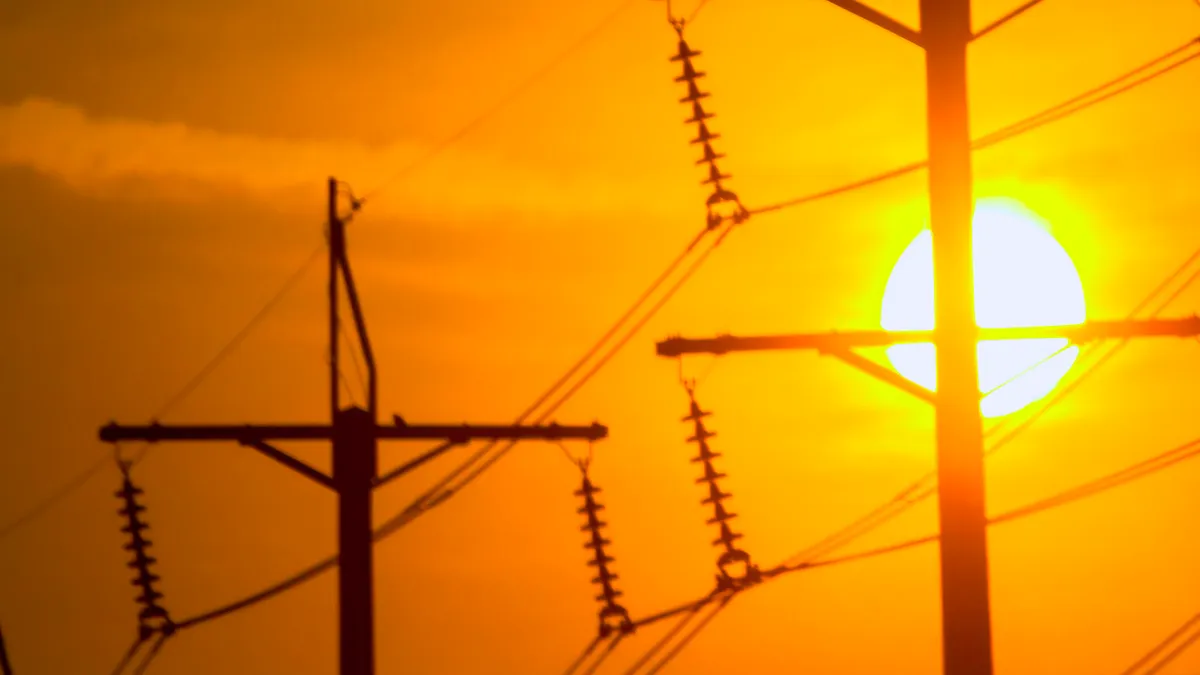Heat waves can have a big impact on the reliability of the energy and power grid.Getty Images/Screenshot by CNET
Energy Crisis: How to Keep Your Home Safe Amid Extreme Weather
As extreme weather events like hurricanes, heat waves, and winter storms become more frequent and severe, protecting your household from their impact on energy usage is crucial. These events can disrupt the power grid, leaving you without essential services like heating or cooling, and potentially making your home unsafe. This guide will show you how to save energy and protect your home, ensuring that you stay safe regardless of the weather.
Extreme temperatures, whether from blistering heat or freezing cold, can strain the power grid. This strain often results in power outages, which can be particularly troublesome during heat waves or winter storms. For instance, this summer, the East Coast experienced potentially deadly heat waves, with temperatures in places like Washington, D.C., soaring above 100 degrees Fahrenheit. These high temperatures not only increase energy consumption but also put stress on the power grid, leading to blackouts.
Winter storms can cause outages by disrupting the energy supply to the grid. This can happen if a power plant goes offline, turbines stop working, or a snow-covered tree falls on a power line. Conversely, during heat waves, outages usually result from excessive demand on the grid, as thousands of homes turn on air conditioners simultaneously to escape the heat. To prevent such blackouts, utilities often urge residents to conserve energy.
Yami Newell, an associate director at Elevate, a nonprofit focused on energy issues, emphasizes that reducing energy consumption doesn’t have to mean enduring extreme discomfort. “In the summertime, it can be dangerously hot, and people have not survived that,” Newell warns. “So I don’t want people to conserve so much energy that their home is not safe.”
To manage energy use during extreme temperatures, experts recommend a few key strategies. During a heat wave, start by sealing leaks in your home to keep cool air inside. Closing blinds during sunny hours helps block out direct sunlight, reducing the heat entering your home. Using fans can also help; while they don’t lower room temperatures, they aid in regulating body temperature and can make a room feel cooler.
Running large appliances like dishwashers and washing machines during off-peak hours—when energy demand is lower—can also reduce strain on the power grid. Additionally, cooling your home in anticipation of a hot day by running the air conditioner during cooler nighttime hours can be effective, especially if your home is energy-efficient and well-sealed.
In winter, preparation is key. Investing in a backup power source, such as a portable generator or battery system, can ensure you have electricity when the grid goes down. Backup power solutions range from expensive whole-home generators to more affordable portable battery stations. If you choose a backup generator, make sure it’s used safely to avoid carbon monoxide poisoning and fire hazards.
If a backup power source isn’t feasible, stock up on essential supplies like food, water, blankets, and batteries. Weatherizing your home before a storm can also help keep warmth inside, extending the effectiveness of your heating system and potentially qualifying for federal tax credits.
Another way to protect yourself from power outages is to set up your own energy generation and storage system. Solar panels combined with battery storage can provide a reliable source of power and may allow you to sell excess energy back to the grid for credits on your electricity bill. Electric vehicles with bidirectional charging capabilities can also serve as a backup power source for your home.
For those on a tighter budget, smaller portable generators can keep essential devices running or preserve food during outages. Mike Murphy from PrepSOS, which sells emergency preparedness equipment, notes that affordable portable generators can keep your refrigerator running and food cold for several days. However, these generators may not be sufficient for running air conditioners during extended outages.
If none of these options are available, Newell suggests keeping a supply of non-perishable food and flashlights to help during extended power outages. Newell also points out that smart grid technology is improving how quickly utilities can restore power during extreme weather events.
Reducing your energy use not only helps your household but also benefits the larger power grid. The stability of the electrical grid relies on maintaining a steady supply of energy to meet demand. Overloading the grid with simultaneous high demand can lead to rolling blackouts or prolonged outages. By employing simple measures like using energy-efficient cooling techniques and reducing energy consumption during peak times, you contribute to overall grid stability.
In summary, protecting your household from extreme weather’s impact on energy requires a mix of preparation and smart energy use. Whether through investing in backup power sources, conserving energy during peak times, or using passive cooling and heating techniques, you can ensure your home remains safe and comfortable regardless of the weather outside.
#EnergySavingTips #ExtremeWeatherPrep #HomeSafety #PowerOutageSolutions #WeatherReady
